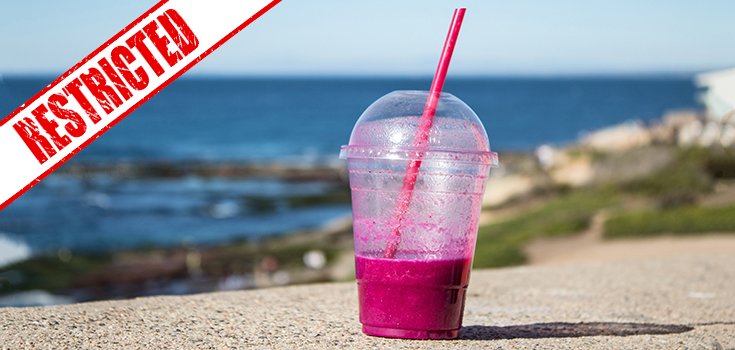EU Seeks to Ban Single-Use Plastics to Combat Marine Litter

The European Union (EU) is proposing a ban on plastic products, including straws, cotton buds, stirrers, and balloon sticks in an effort to reduce pollution on beaches and ocean beds. [1]
EU Vice-President Jyrki Katainen said in a statement:
“Plastic can be fantastic but we need to use it more responsibly. Today’s proposals will help business and consumers to move towards sustainable alternatives.” [2]
He added:
“Single-use plastics are not a smart economic or environmental choice, and today’s proposals will help businesses and consumers to move towards sustainable alternatives. This is an opportunity for Europe to lead the way, creating products that the world will demand for decades to come, and extracting more economic value from our precious and limited resources.” [3]
Read: Edible Silverware Could Cut Down on Plastic Waste and Pollution
The EU is working to take the lead in the $2.9 trillion sustainable goods industry, according to Unilever. It can take up to 1,000 years for some plastics to decompose, and one of the EU’s proposals calls on companies to establish re-use systems such as deposit refund initiatives to ensure a constant flow of high-quality materials.
The European Commission’s goal is to cut marine litter in half for the 10 most prominent items and prevent environmental damage, which comes with an estimated price tag of $250 billion over the next 12 years. [1]
Under the proposal, plastic utensils would not be banned outright, but steps would be taken to start making them from sustainable materials when possible, according to EU Vice President Frans Timmermans.
He said:
“You can still organize a picnic, drink a cocktail, and clean your ears just like before.”
Under the proposal, member states will have to collect 90% of single-use drink bottles by 2025. [2]
Timmermans also created new proposals that would ensure that the polluters pay up. Plastic producers will be required to cover some of the costs of waste management and label how waste will be disposed, as well as indicate “the negative environmental impact of the product, and the presence of plastics in the products.” [2]
He hopes to see results before May 2019, following an assessment by the EU parliament and member states. [1]
Lasse Gustavsson, the European executive director of the environmental group Oceana, lauded the initiative, saying:
“The only way to stop plastics pouring into our oceans is to turn off the flow at its source: production.”
European Green Party lawmaker Monica Frassoni also celebrated the move, adding that “the scale of the problem means that we cannot rely on individual European countries to take action and must instead find a Europe-wide response.”
Read: Sad – Humans Have Created 9 Billion Tons of Plastic in 67 Years
Plastics production is now 20% higher than it was in the 1960’s, the European Parliament has said. Part of the decision to draw up the proposal was fueled by China’s decision to no longer import part of the bloc’s waste.
Sources:
[2] Bloomberg News
[3] Fortune
